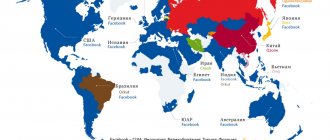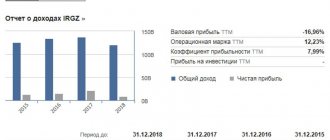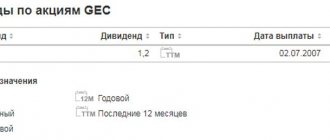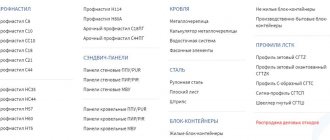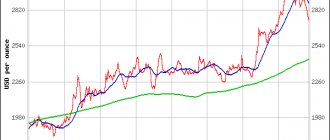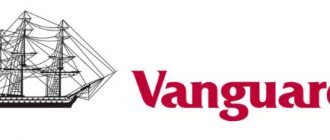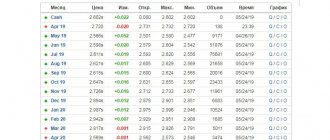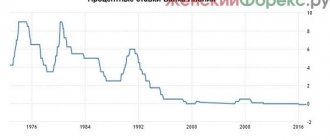| Photo: google.com/maps |
An observation procedure has been introduced in the group that speaks St. Petersburg. The company was crippled by an unsuccessful project for its own chain of hypermarkets, conflicts between shareholders and managers, and the coronavirus completed everything.
The Arbitration Court introduced a monitoring procedure at PJSC Group. The company unites a number of enterprises in different regions of the country engaged in the production of filters, auto chemicals, plastic products, and woodworking. One of the largest assets of the Nevsky Filter group is located in St. Petersburg and is a supplier to automobile factories and other industrial enterprises. In particular, it supplies cabin filters for Hyundai cars.
Contractor makes Smolny engineering structures designer bankrupt Litigation
Securities data
| Ticker | MCX: RLMN (common shares) MCX: RLMNP (preferred shares) |
| Trading platforms and trading times | Moscow Exchange. 10:00 – 18:40 Moscow time |
| Name | Public Joint Stock Company "Rollman Group of Companies" |
| Number of securities in circulation | 4,700,000 pcs. ordinary shares. 1,560,000 pcs. preferred shares. |
| Denomination | Ordinary shares: 100 rubles. Priv. shares: 100 rubles. |
| Dividends | NO |
| Year of foundation | 1993 |
| Founded by | Not indicated |
| Headquarters | 196084, Russian Federation, St. Petersburg, st. Zaozernaya, 14 A, letter G, office 2. |
Rollman - company description
PJSC Rollman Group of Companies
is an innovative diversified holding that unites manufacturing enterprises for the production of filter materials, filters and filter elements, auto chemicals in aerosol packaging, plastic products, wood processing, and also carries out development activities.
PJSC GC Rollman
one of the few manufacturers of filters and filter materials in the CIS that has its own engineering center that develops new materials and world-class filter elements.
4,700,000 ordinary shares with a par value of 100 rubles were issued. and 999,999 preferred shares with a par value of 100 rubles.
It is included in the Innovation Index on the Moscow Exchange. Tickers RLMN, RLMNP.
rollman-gk.com/?page=0
Exchange rate dynamics for all time
Rollman stock prices have been a history of prolonged declines with small periodic rebounds. Long-term investors in these securities were unlikely to earn anything, and most likely even lost part of their capital.
Since entering the MICEX (end of 2012), ordinary shares managed to rise in price from 300 to 475 rubles in the first few months, but after that the trend changed sharply, the issuer’s securities went into a bearish trend. At the moment they are quoted at about 20 rubles per share, i.e. their ruble value has fallen 15 times in 6 years. And the shareholders did not receive any dividends here.
Preferred shares of Rollman appeared in traders’ exchange terminals a year and a half later and remained in a wide range of 80–100 rubles for quite a long time. But from 2021, after the cancellation of dividend payments, the company’s preferred shares also began to fall in value. Today their price fluctuates around 25 rubles, trading at a certain premium to ordinary shares.
About company
At the origins of the Rollman Group of Companies there was an organization engaged exclusively in trading and purchasing activities. It was originally called "Edelweiss" in 1993.
Production sites began to appear after 1995. The first of them was a small plant for the production of plastic products and packaging, MPB Plast (later its capacity was sold to foreign investors).
Then it actively expanded its activities, acquiring more and more production facilities, as well as expanding work on creating its own unique products.
At the moment, the group of companies is engaged in a fairly wide range of different business processes - from research and production activities to the sale of products to the end consumer.
Ordinary shares of Rollman Group of Companies were listed on the Moscow Exchange in December 2012. Trading of preferred shares began in May 2014.
Production of the company
The activities of the Rollman organization include the following aspects:
- Research and production activities for the creation of filter materials and filters.
- Production and sale of household and auto chemicals.
- Woodworking.
- Rental of premises and industrial facilities.
Main shareholders
The main holders of the group's shares are:
| Holder | Ordinary shares | Preferred shares |
| HK Z&F HOLDING GROUP LTD | 18,11% | |
| Investment LLC | 14,22% | |
| JSC Torgovaya | 4,28% | |
| Others | 63,39% | 100% |
Key figure and her role
The general director of the group is Sergey Vladimirovich Emelyanov. He has been in this position since March 2021. Along with this position, he holds the post of technical director in the subsidiary Trimit Plant LLC.
His responsibilities as General Manager of Rollman Group include:
- organization and monitoring of the implementation of instructions from senior management bodies;
- representing the interests of society at different levels;
- approval and regulations of internal documentation;
- preparation of plans for the development of a joint stock company;
- operational management of the organization's activities.
Affiliated companies
The group's organizational structure includes many subsidiaries, including:
- CJSC PKF Nevsky Filter;
- OJSC Livensky Automotive Aggregate Plant;
- CJSC SZK VELV;
- HK Z&F HOLDING GROUP LIMITED;
- LLC "Trading House "Krup";
- LLC "Vishera DOZ Domostroy";
- construction base "Pushkinskaya", etc.
Company plans for the future
The Rollman Group strategy includes the following points:
- Increasing the share of sales in the domestic market of the Russian Federation.
- Increasing the output of high value-added and high-margin products.
- Research activities and launch of fundamentally new products in the field of auto chemicals and filter materials.
- Increasing long-term contracts for direct supplies with major Russian and foreign partners.
Dividend statistics
| For what year | Period | Last day of purchase | Registry closing date | Size per share | Dividend yield | Closing share price | Payment date |
| 2016 | 16 Dec 2016 | 20 Dec 2016 | 7,1 ₽ | 7,96% | 89,2 ₽ | 3 Jan 2017 | |
| 2016 | 7 Sep 2016 | 9 Sep 2016 | 7,1 ₽ | 7,47% | 95 ₽ | 23 Sep 2016 | |
| 2015 | March 3, 2016 | March 7, 2016 | 3,55 ₽ | 3,84% | 92,4 ₽ | March 21, 2016 | |
| 2015 | 26 Nov 2015 | 30 Nov 2015 | 3,55 ₽ | 4,03% | 88,1 ₽ | 14 Dec 2015 | |
| 2015 | 10 Sep 2015 | 14 Sep 2015 | 3,55 ₽ | 4,73% | 75 ₽ | 28 Sep 2015 | |
| 2014 | June 3, 2015 | June 5, 2015 | 10,65 ₽ | 15,21% | 70 ₽ | June 19, 2015 | |
| 2014 | 21 Nov 2014 | 25 Nov 2014 | 7,1 ₽ | 7,96% | 89,2 ₽ | 9 Dec 2014 | |
| 2014 | May 28, 2014 | June 1, 2014 | 7,1 ₽ | 7,1% | 100 ₽ | June 13, 2014 |
The dividend policy of Rollman Group of Companies establishes a minimum level of payments only for preferred shares. Thus, if there is a financial opportunity, 14.2% of their nominal value should be deducted annually for one AP, which is 14.2 rubles. on one paper.
At the same time, preferences are cumulative. This means that dividends on them, in the event of non-payment, can accumulate and pass on as a liability for distribution to future periods.
Thus, an unpaid or partially paid dividend on preferred shares can be distributed no later than 2 years from the decision of the general meeting of shareholders following the AGM, at which the decision on non-payment of dividends was made.
No dividends were paid on ordinary shares.
Interesting facts about the company
- The group is actively engaged in research and development activities, and its innovative achievements currently include 12 registered patents for the development of special filter materials and unique filter elements operating in extremely difficult conditions.
- There is also an unpleasant fact in the history of the company. In mid-2021, the Bank of Russia revealed the fact of manipulation of the group’s shares. From the IPO through May 2021, the unscrupulous group of participants accounted for nearly 90% of total trading volume in Rollman shares, regulators said.
The contractor bankrupts the designer of engineering structures of Smolny
1324
Dmitry Marakulin
The founder and main owner of the company was considered a businessman of Georgian origin Temur Psuturi, who five years ago was one of the hundred richest St. Petersburg residents. But according to the latest data disclosed by the company, the owner of 71.5% of the shares is the National Settlement Depository. Another 13.5% is owned by the Cypriot Z&F Holding Group, the remaining 15% is traded on the Moscow Exchange.
In 2021, the Central Bank established the fact of manipulation of these securities. “After that, all serious investors left them,” recalls Dmitry Kumanovsky, head of the investment analytical department.
The following year, the company suffered another blow - the Ministry of Emergency Situations closed the one it owned in Pushkin. Rollman planned to create a network of such hypermarkets. But it was not possible to bring the first object into compliance with the rescuers’ requirements. “As a result, the entire facility was sold at the price of ordinary warm warehouses. “Absolutely all the money from the sale of the hypermarket was spent on closing debts to Nevsky Narodny Bank PJSC,” Denis Savenok, Chairman of the Board of Directors of Rollman Group of Companies PJSC, said in an interview published on the company’s website. In the same interview, he talks about some investors who chose “the unpromising path of the courts.” Indeed, dozens of lawsuits have been filed against the company, mostly from individuals. Some of them are satisfied.
With the onset of the coronavirus pandemic, Nevsky Filter launched the production of respirator masks, but it did not manage to become profitable, Denis Savenok said in October. He also complained about other problems, such as a drop in demand and the impossibility of foreign specialists arriving, in particular from Central Asian countries. Meanwhile, Temur Psuturi received a bankruptcy claim from ActiveCapital Bank. His debts are estimated at 18.3 million rubles. On September 28, 2021, the court introduced a procedure for restructuring the businessman’s debts.
The bankruptcy claim of Rollman Group of Companies was filed in June. As of August, the organization’s debts to three individuals were estimated at 1.4 million rubles. At the same time, Rollman’s net loss for 2021 amounted to 637 thousand rubles.
“Judging by the information in the file of arbitration cases, PJSC Group attracted additional financing using the structure of a repurchase agreement and was unable to fulfill its obligations to repurchase shares and pay income. Accordingly, during the bankruptcy procedure it will become clear what other creditors the company has, who will determine the further course of the bankruptcy case,” comments Alexandra Ulezko, head of the bankruptcy group, lawyer at the Kachkin and Partners bureau.
“From my point of view, the current bankruptcy procedure will make it possible to replace management, which has proven to be ineffective, and return the enterprise to sustainable operation, especially since its products are in demand and import-substituting,” believes Dmitry Kumanovsky.
Trust Bank is bankrupting the head of a farm from the Leningrad region Arbitration
Where and how to buy shares today
Today there are several ways to purchase shares of Rollman Group of Companies:
- through a broker;
- through a bank;
- directly from the counterparty.
Since shares are traded on the Moscow Exchange, it is preferable to choose the first option and use the services of a licensed broker, but if necessary, you can use other methods.
Through a Russian broker
Reliable Russian brokers
| Name | Rating | pros | Minuses |
| Finam | 8/10 | The most reliable | Commissions |
| Opening | 7/10 | Low commissions | Imposing services |
| BKS | 7/10 | The most technologically advanced | Imposing services |
| Kit-Finance | 6.5/10 | Low commissions | Outdated software and user interface |
Here you can see the leaders of the Russian stock brokerage market.
Almost all of these brokerages now allow you to open accounts online, have competitive fees and a high level of reliability combined with quality financial services.
Directly from a company, individual or firm
In rare cases, issuers allow you to buy/sell your shares directly through the organization's office.
To make a transaction with a third-party legal entity/individual, it is necessary to draw up a special agreement, and then contact the accounting depository to make changes to the register of holders of a particular issuer.
What affects the stock price
The main factors that can influence the price of shares of Rollman Group of Companies are:
- operational and financial indicators of the issuer;
- foreign policy and general economic trends;
- interest rates;
- level of import duties on cars and spare parts;
- sentiments of market participants.
Company prospects
In the near future, Rollman Group of Companies plans to maintain sales figures and production volumes at the 2021 level.
The organization has a high level of debt burden; this fact will continue to put pressure on business margins. Rollman's net debt as of 1st half. 2021 is about 344.3 million rubles. The prevailing part of credit funds has a rate above 12% per annum, which can cost the organization about 40 million rubles annually. only percentages.
So far, there are no truly effective growth points that can lead to greater operational efficiency of the issuer. However, in the main business of selling filters, Rollman is well-contracted and has established relationships with stable large suppliers, such as Russian Railways and a number of other large companies.
If Rollman Group works to increase value-added products and sales at its own retail sites, this could have some positive impact on the company's operations in the long term.
Analytics and forecast for the security
The main trigger for the growth in the value of Rollman Group shares is a possible reduction in the debt burden in the future and a return to paying dividends, which at a given share price could provide a fantastic return on preferred shares of more than 50% per annum.
But such a scenario looks unlikely.
The uncovered loss of Rollman Group of Companies according to IFRS is 170 million rubles. Operating profit is 66 million rubles, EBITDA is about 85 million rubles. The net debt/Ebitda multiplier is at 4.3x. Interest on loans, excluding the body, must be paid about 40 million rubles. in year. Net asset value is below capital and reserves. Important! Since this is a condition that does not allow paying dividends.
All this suggests that it is currently in poor financial condition; at least in the near future, you should not count on a return to dividend payments.
Right to dividend and terms of sale. Prefs of PJSC Rollman. Legal review.
In this review, we will look at the cumulative preferred shares of Rollman PJSC, the right to dividends and terms of sale, the consequences of non-payment of dividends, as well as shareholder options.
Cumulative preferred shares are preferred shares for which the unpaid or incompletely paid dividend, the amount of which is determined by the charter, is accumulated and paid no later than the period specified by the charter. If the charter of the company does not establish such a period, preferred shares are not cumulative (paragraph 3, paragraph 2, article 32 of the Federal Law on JSC).
Shareholders - owners of cumulative preferred shares of a certain type have the right to participate in the general meeting of shareholders with the right to vote on all issues within its competence, starting from the meeting following the annual general meeting of shareholders, at which a decision on payment of these shares in full should have been made accumulated dividends, if such a decision was not made or a decision was made on incomplete payment of dividends. The right of shareholders - owners of cumulative preferred shares of a certain type to participate in the general meeting of shareholders terminates from the moment of payment of all accumulated dividends on these shares in full (paragraph 2, clause 5, article 32 of the Federal Law on JSC).
According to clause 6.3 (clause 7.1.1) of the Rollman charter - the size of the dividend is determined as a percentage of the par value of preferred shares of type "A" and is 14.2%, the liquidation value is determined in the amount of 100% of the par value of preferred shares of type "A" " Unpaid or incompletely paid dividends on preferred shares of type “A” are accumulated and paid no later than two years starting from the meeting following the annual general meeting of shareholders, at which a decision was not made to pay dividends on these shares or a decision was made to incomplete payment of dividends.
The last dividends on preferred shares were paid for the first half of 2016. At the AGM on June 29, 2021, a decision was made not to pay dividends for the second half of 2021. On February 20, 2021, an EGM was held, at which the company’s auditor was approved. At the AGM on June 28, 2021, it was decided not to pay dividends based on the results of 2021.
Thus, the accumulated dividend is 21.3 rubles per share excluding 2021 (2nd half of 2021 and 2017). There is a high probability that dividends will also not be paid for 2021 (14.2 rubles).
The accumulated dividend is paid no later than two years from the meeting following the annual general meeting of shareholders, at which no decision was made on the payment of dividends on these shares or a decision was made on incomplete payment of dividends. In fact, such “next meeting” is the EGM on February 20, 2021, i.e. The countdown of two years should begin on February 20, 2021 (we will consider it as a base case). Otherwise, the AGM on June 28, 2021 will be taken as the starting point.
Thus, the accumulated dividend on the cumulative preferred shares must be paid before February 20, 2021. In case of failure to pay the accumulated dividend on time, the cumulative preferred shares become voting. How can a shareholder protect his rights in the event of non-payment of dividends on cumulative preferences?
From this moment the fun begins. There is no judicial practice on cumulative preferred shares. There is an established judicial practice of collecting declared dividends with interest under Art. 395 of the Civil Code of the Russian Federation. There is a very controversial practice of challenging decisions of company management bodies. There are unsuccessful attempts by Arsagera to sue undeclared dividends. Let's see what legal arsenal we can use.
The difference between cumulative preferred shares and ordinary preferred shares lies in the accumulated dividend; the law makes it possible to establish an additional guarantee in the charter for their owners (the dividend is accumulated and paid no later than the period specified by the charter). The additional guarantee should provide for a special mechanism for protecting the rights of owners of cumulative preferred preferences. If there is no additional protection mechanism, there is no additional guarantee. Otherwise, the difference between cumulative preferred shares and simple preferred shares is only in the amount of dividends that the company will be obliged to pay before paying dividends on ordinary shares. For cumulative preferences, the company will be obliged to pay dividends accumulated over several years, and for simple preferences, it will be required to make a one-time payment.
As noted earlier, there is an established judicial practice of collecting declared dividends with interest under Art. 395 of the Civil Code of the Russian Federation. We know that the basis for demanding the payment of dividends is a legal fact such as a decision (announcement) of the general meeting of shareholders on the payment of dividends. In this case, there should be no restrictions specified in Art. 43 Federal Law on JSC. Let’s also remember that paying dividends is a right, not an obligation, of society.
Let's consider the ideal legal relationship between the owner of cumulative preferred shares and society. We have an obligation*, where there is a debtor (company) and a creditor (shareholder), the accumulated dividend in this case is the debt of the company to the shareholder. If the deadline specified in the charter is missed, can the shareholder collect this debt, as well as interest under Art. 395 of the Civil Code of the Russian Federation?
There are two points of view on the legal nature of a book-entry security (share): 1) property law; 2) obligatory. In the context of this review, we will adhere to the second point of view. Let us also note the fact that companies (in particular, Rollman) classify preferred shares as liabilities in their reporting. How this is justified from the point of view of economic theory and accounting reporting is a question for you, dear readers.
We need a legal fact - a basis for collecting accumulated dividends. Could such a reason be failure to pay the accumulated dividend within the period established by the charter? Hardly. Firstly, this position is contrary to practice, where the decision of the general meeting of shareholders is recognized as the relevant legal fact. Secondly, a positive court decision can put the company in a difficult financial situation. Third, if the shareholder could recover the accumulated dividend, there would be no need to give the cumulative preferences voting rights in the event of failure to pay dividends on time.
Can we apply Art. 395 of the Civil Code of the Russian Federation (Liability for failure to fulfill a monetary obligation)? According to paragraph 1 of this article, in cases of unlawful withholding of funds, evasion of their return, or other delay in their payment, interest on the amount of the debt must be paid. The amount of interest is determined by the key rate of the Bank of Russia in force during the relevant periods. These rules apply unless a different interest rate is established by law or agreement.
Based on judicial practice (Resolution of the Supreme Arbitration Court of the Russian Federation dated November 18, 2003 No. 19), we can apply Art. 395 of the Civil Code of the Russian Federation in relation to dividends in two cases:
- In case of non-payment of declared dividends;
- In the event that the company does not have the right to pay declared dividends due to the restrictions established in clause 4 of Art. 43 Federal Law on JSC. Suspension of the payment of dividends in the cases specified in this paragraph does not deprive shareholders of the right to receive declared dividends after the termination of the circumstances preventing their payment. After the termination (elimination) of such circumstances, the company is obliged to pay declared dividends to shareholders within a reasonable time. If they are not paid within such a period, the shareholder has the right to apply to the court with a claim for the recovery of dividends with the accrual of interest on the amount due to him for the delay in fulfilling the monetary obligation (Article 395 of the Civil Code of the Russian Federation) for the period from the day on which the company’s obligation to pay them occurred (after eliminating the reasons preventing payment) until the debt is repaid.
As we see, in both cases dividends must be declared, there must be a decision of the general meeting of shareholders on the payment of dividends. We again come up against the absence of a legal fact.
Let us note that according to paragraph 1 of Art. 43 of the Federal Law on Joint-Stock Companies does not have the right to make a decision (announce) on the payment of dividends on shares:
- until full payment of the entire authorized capital of the company;
- before the repurchase of all shares that must be repurchased in accordance with Art. 76 of this Federal Law;
- if on the day such a decision is made the company meets the signs of insolvency (bankruptcy) or if the specified signs appear in the company as a result of the payment of dividends;
- if on the day such a decision is made, the value of the company’s net assets is less than its authorized capital, and the reserve fund, and the excess of the liquidation value of the issued preferred shares over the par value determined by the charter, or becomes less than their size as a result of such a decision;
- in other cases provided for by federal laws.
It is necessary to distinguish between the abstract right to a dividend as part of the legal capacity of a shareholder and the conditions for the exercise of this right.
The right to a dividend appears (is exercised) by the shareholder:
- the presence of net profit or funds from previously formed special funds of the joint-stock company (clauses 1, 2 of article 42 of the Federal Law on joint-stock companies);
- in the presence of a decision of the board of directors of the JSC containing recommendations on the amount of dividends (clause 3 of Article 42, Article 65 of the Federal Law on JSC);
- after holding a general meeting of shareholders, which requires a quorum - the participation of shareholders who collectively have more than half the votes of the company's outstanding voting shares (clause 3 of article 42, clause 1 of article 58 of the Federal Law on JSC);
- if there is an issue on the payment (declaration) of dividends on the agenda of the general meeting of shareholders (clause 3 of article 42, clause 1 of article 48 of the Federal Law on JSC);
- when making a decision on the payment (declaration) of dividends by a majority vote of shareholders - owners of voting shares of the company taking part in the meeting (clause 2 of article 49 of the Federal Law on JSC);
- subject to the condition that the amount of dividends cannot be more than recommended by the board of directors of the company (clause 3 of article 42, article 65 of the Federal Law on JSC);
- after the announcement of the decisions and voting results adopted by the general meeting (clauses 1, 4, article 62, article 63 of the Federal Law on JSC);
- when the dividend payment deadline arrives (clause 4 of article 42 of the Federal Law on JSC);
- when a shareholder is included in the list of persons entitled to receive dividends (clause 4 of article 42 of the Federal Law on JSC).
All these conditions must be met together.
Regarding the second condition, we present an excerpt from the FAS Resolution dated June 7, 2010 in case No. A65-23974/2009: “The Board of Directors did not recommend that the company pay dividends based on the results of the year. Therefore, the meeting of shareholders could not make a decision on their payment.” According to the explanation given in the Resolution of the Supreme Arbitration Court of the Russian Federation dated November 18, 2003 No. 19, the decision of the board of directors can be challenged in court by filing a claim to declare it invalid, as in the case where the possibility of challenging is provided for in the Federal Law (Articles 53, 55, etc. ), and in the absence of appropriate instructions, if the decision made does not meet the requirements of the Federal Law and other regulatory legal acts and violates the rights and legally protected interests of the shareholder. Since the JSC is not obliged to distribute profits as dividends, the recommendations of the board of directors not to pay dividends are not illegal.
Conclusion
The difference between cumulative preferred shares and simple preferred shares is only in the amount of dividends that the company will be obliged to pay before paying dividends on ordinary shares. In case of failure to pay the accumulated dividend within the period established by the charter, the cumulative preferred shares become voting until the full payment of the accumulated dividend. Based on the current judicial practice, it is not possible to recover accumulated dividends that were not paid on time, as well as to challenge the decision of the board of directors containing a recommendation not to pay dividends.
The purchase of Rollman prefs is the purchase of potentially voting prefs with an accumulated dividend, which, in essence, blocks payments as usual (the accumulated dividend on the prefs must be paid first). In this regard, I do not recommend buying/holding Rollman common stock.
Quantity of Rollman JSC: 4,700,000 pcs.
Number of Rollman up: 1.560.000 pcs.
Accumulated dividend (excluding 2018): RUB 21.3
Issue price: 33,228,000 rub.
Deadline for payment: February 20, 2021.
Will Rollman be able to pay the accumulated dividend? We can discuss this.
And a little news: the website of my law firm will be ready very soon and I’ve already got my eye on an excellent office in the center of Petrogradka. If everything can be done quickly, then everything will be ready by the beginning of 2019. We will protect the rights of shareholders and more.
